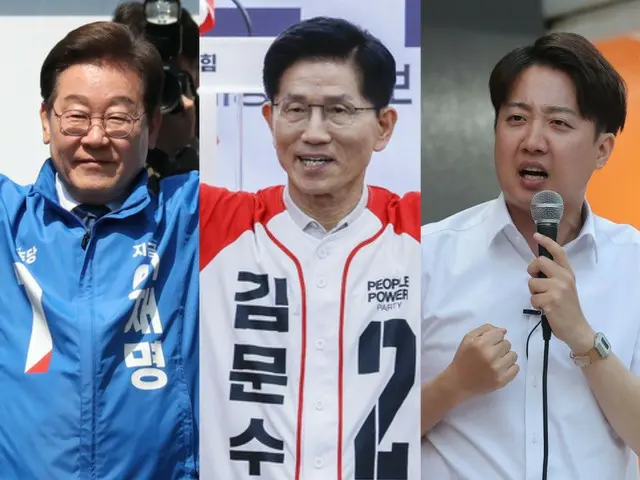The election is currently in the midst of a third candidate, Lee Jun-seok of the opposition New Reform Party, who is challenging the two major party candidates, and his support is increasing as the election approaches.
Democratic Labor Party candidate Kwon Young-guk has also been gradually increasing his presence since the TV debate held on the 18th. Candidate Lee Jae-myung's lead remains unchanged, but in the final stages of the election,
The battle between the candidates challenging Myung is also attracting attention. Lee Jun-seok is a former member of Seoul City, aged 40. In June 2021, he was elected as the representative of the ruling People Power Party at the young age of 36 without any prior experience as a member of the National Assembly.
In the 2022 presidential election, he supported former President Yoon Seok-yeol as party leader, and after Yoon won the presidential election, Lee became the leader of the ruling party.
Lee subsequently announced his departure from the party and the formation of the "New Reform Party" in December 2023. He sought to create a "third force" that would incorporate those dissatisfied with the two existing major conservative and liberal parties.
The presidential election was held following the impeachment of former President Yoon, but Lee was elected in February this year when Yoon was impeached and the presidential election was held.
Lee said he would "play a role" if he was elected, and announced his candidacy. Lee was 39 years old at the time, but turned 40 in March, making him eligible to run. At the time, Lee said in a press conference, "The Republic of Korea is also boldly undergoing a generational transition.
"We should promote structural change," he said, naming John F. Kennedy, Clinton and Obama, all U.S. presidents who were in their 40s, and said, "Change will come with a bold generational change."
On the 28th of last month, at a press conference with foreign media in Seoul, he said, "If I can become the president of South Korea at the age of 40, I will be able to empower many young people in Asia." He also spoke about Japan-Korea relations,
"If the Japanese government refrains from making statements or taking actions that could cause tension over historical issues, we will take the lead in developing Korea-Japan relations," Lee said.
In addition, he also said that he would reduce the number of ministries from 19 to 13, to realize cross-ministerial responses. The official election campaign started on the 12th of this month, and on the first day, Mr. Lee
He visited the southwestern Jeolla province, a major voting bloc for the opposition Democratic Party of Korea, and stressed that he would pursue policies aimed at young people and future generations.
In the National Indicator Survey released on the 22nd of this month, Lee's approval rating rose 3 points from the previous week to 10%.
According to South Korean media, the ruling People Power Party has offered to appoint Kim Moon-soo, the party's official candidate, to the position of Lee.
According to reports, party officials frequently contacted Lee's side, saying, "I'll give up party authority (the party leadership, i.e. the party chairmanship), so let's consolidate the party."
On the 22nd, Lee said about the unification, "The people who voted for me in the National Assembly elections expect me to maintain an unwavering political stance.
"I don't want to be asked any more questions about consolidation. It's pointless," Lee said.
Democratic Labor Party candidate Kwon Young-guk has also been gaining attention in recent days.
The debate will be held following the impeachment of Yoon, who made the remarks, but Kwon sharply criticized Kim Moon-soo, the candidate of the ruling People Power Party, in a television debate held on the 18th.
"What qualifications does Yoon have to run in an election being held in Seoul?" he asked, "Does he acknowledge that he has plunged a knife into the economy with martial law, cutting off all flows of tourism, consumption and investment?"
His comments at the debate attracted voters, and after the debate, the Democratic Labor Party, to which Kwon belongs, reportedly received many messages of support from voters.
Nia is a former member of the lawyer and has studied abroad at Tokushima University. Her campaign pledges for the presidential election include "restoring the neutral course that the previous Yoon administration lost and diversifying diplomacy," and "building an economic structure for coexistence."
In a survey of presidential candidates' approval ratings conducted by the South Korean polling agency Realmeter on the 20th and 21st of this month, candidate Lee was in the lead with 48.1%, followed by candidate Kim with 38.6% and candidate Lee with 9.
4%, followed by candidate Kwon at 0.6%.
2025/05/23 13:39 KST
Copyrights(C)wowkorea.jp 5

